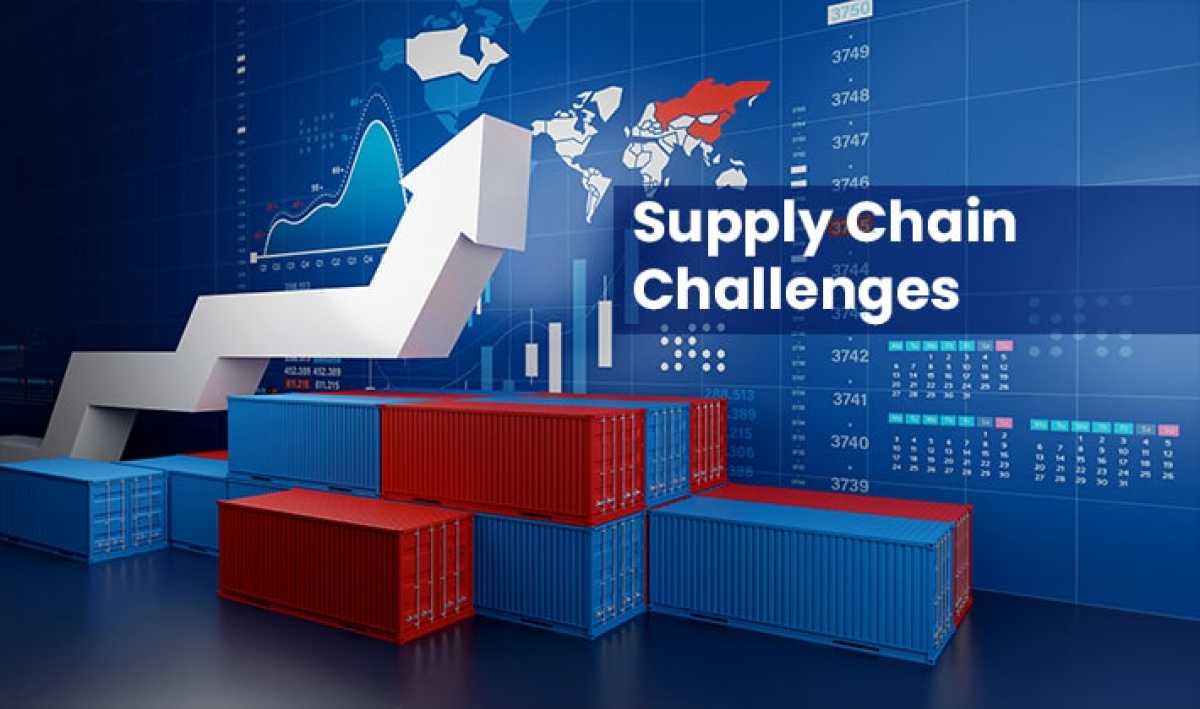Features
Challenges And Solutions In Supply Chain Management

Supply chain management plays a crucial role in the success of any business. It involves the flow of goods, services, and information from the point of origin to the point of consumption. However, managing the supply chain can be a complex task due to various challenges that arise along the way. In this article, we will explore some of the challenges faced in supply chain management and possible solutions to overcome them.
1. Demand and Supply Planning
One of the key challenges in supply chain management is accurately forecasting and planning demand. Insufficient demand forecasting can lead to excess inventory and wasted resources, while inaccurate supply planning can result in stockouts and missed customer demand. To tackle this, businesses can employ technologies such as advanced analytics and artificial intelligence to analyze historical data, market trends, and customer behavior patterns to enhance demand and supply planning accuracy.
2. Inventory Management
Managing inventory efficiently is crucial to ensure operational efficiency and customer satisfaction. Excess inventory ties up capital and increases carrying costs, while insufficient inventory leads to stockouts. Implementing inventory management systems with real-time visibility, automating replenishment processes, and adopting just-in-time (JIT) inventory practices can help optimize inventory levels and ensure a balance between supply and demand.
3. Supplier Relationship Management
Managing supplier relationships is vital for a smooth supply chain operation. Challenges such as poor communication, late deliveries, quality issues, and price volatility can disrupt the supply chain. To mitigate these challenges, businesses can establish clear communication channels, build strong partnerships with suppliers, and implement regular supplier performance evaluations. Collaborative tools and technologies can also facilitate real-time information sharing, leading to better supplier relationship management.
4. Transportation and Logistics
Efficient transportation and logistics are critical components of supply chain management. Challenges such as rising fuel costs, changing regulations, capacity constraints, and unpredictable disruptions can impact the timely delivery of goods. To overcome these challenges, companies can leverage transportation management systems (TMS) to optimize routes, consolidate shipments, and track deliveries in real-time. Collaborating with third-party logistics providers can also help in enhancing transportation efficiency and reducing costs.
5. Technology Integration
The rapidly evolving landscape of technology presents both opportunities and challenges in supply chain management. Integrating different technology systems, such as enterprise resource planning (ERP), customer relationship management (CRM), and warehouse management systems (WMS), can be complex and costly. Adopting cloud-based solutions, implementing application programming interfaces (APIs) for seamless data exchange, and leveraging data analytics can help businesses overcome technology integration challenges and optimize supply chain operations.
6. Risk Management
Risks such as natural disasters, geopolitical events, supplier failures, and cyber-attacks can disrupt the supply chain and have severe financial implications. Businesses need to have robust risk management strategies in place to proactively identify potential risks, develop contingency plans, and establish alternative sourcing options. Conducting regular risk assessments, investing in supply chain resilience, and collaborating with supply chain partners can help mitigate risks and ensure business continuity.
7. Sustainability
In today’s environmentally conscious world, sustainability has become a significant challenge in supply chain management. Consumers increasingly demand environmentally friendly products and ethical sourcing practices. To address this challenge, businesses can adopt sustainable procurement practices, optimize packaging and transportation to reduce carbon footprint, and collaborate with suppliers committed to sustainability. Implementing environmentally friendly practices not only aligns with customer values but also helps in reducing costs and enhancing brand reputation.
In conclusion, supply chain management faces several challenges, ranging from demand and supply planning to sustainability. By implementing appropriate solutions, such as advanced analytics, technology integration, and risk management strategies, businesses can overcome these challenges and create efficient and resilient supply chains. Embracing innovation and collaborations with supply chain partners are key to staying competitive in the ever-evolving global marketplace.










